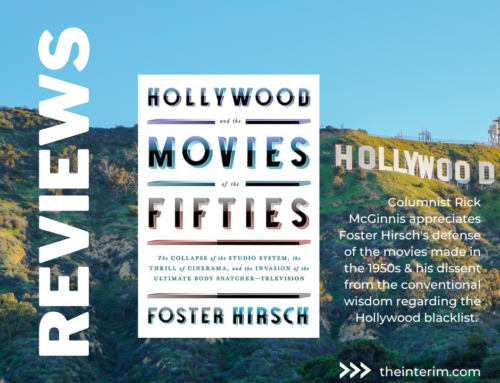Seven years ago, a New York City columnist named Lenore Skenazy wrote a column about letting her nine-year-old son Izzy take public transit home by himself. Within days, she was at the centre of a media furore that saw Lenore dubbed “World’s Worst Mom,” and found herself made a standard bearer for whatever pushback is happening against an increasingly supervised and circumscribed style of parenting that Skenazy certainly wasn’t the first parent to notice.
Making lemonade out of lemons, Skenazy turned the whole incident into a blog called Free-Range Kids, which led to a book with the same title, and later a TLC TV series that brazenly went to air as World’s Worst Mom. (It was called Bubble Wrap Kids when it aired on Slice in Canada. Take from that what you will.)
I applaud Skenazy for her bravery, having noticed long ago that the childhood my own kids were experiencing was a far cry from the largely unsupervised version I lived through in the urban ‘70s, which was by comparison of meagre freedom and liberty compared to that lived by my own parents, or by almost anyone who grew up in the country.
Having said that, we didn’t throw open the prison gates and allow our children new liberties or freedom of movement, and I don’t see that the years since Skenazy’s brief term of media infamy have seen any major moves away from the excesses of what’s been called “helicopter parenting.” It’s as if a generation of parents are eyeing each other, waiting for someone else to pull down their gates first, looking up and down the block and waiting for the first child to emerge dazed and alone from behind the hedges, carrying bus fare and a sheet of phone numbers “in case something happens.”
Defenders of this overprotective parenting insist that they’re doing it out of love for their kids; that the world has changed; that it’s better to be safe than sorry. Cautious rebels against the helicopter parenting status quo admit that they’d love to be bolder, but they’ve read stories on the internet about child protective services being called on parents who let their kids play outside alone or walk home by themselves. What side you fall on in the debate depends on whether you’re more scared of society or your government.
That there might be a lasting social and cultural effect to this diminished experience of childhood is the theme of a book, published in 2010 but just issued in paperback this year, with the sardonic title Ten Ways to Destroy the Imagination of Your Child, by Anthony Esolen, a professor of English at Providence College in Rhode Island.
Esolen’s thesis is that if you wanted to create a dull, compliant, unquestioning citizen able to take their place in a country that requires spiritless students and unambitious workers but eager consumers ready for any new bauble or fad, he can list ten surefire ways to do it – all of which we’re already doing, and have been for at least a couple of generations.
Replace tales of wonder and heroism with political clichés and fads, make love seem more like masturbation, deny the divine, make education neither useful nor challenging, and certainly make sure that children have as few chances as possible to experience the brutal but sublime wonders or nature or science or machinery, and never without our dutiful, if a bit bored, supervision. Esolen lays it all out, describing the wonders of time spent under open skies, in strange places, with friends or alone, reading great books, and teasing out the sense of wonder that comes so easily to a child, before sarcastically insisting that these are all things devoutly to be avoided if you wish to produce a citizen able to meet the standards of the world we’re creating around them.
This sarcasm might be a bit lost on some people. Promoting his book on the “Fox & Friends” show, Esolen insisted on maintaining his sarcastic conceit, to the bafflement of the Ken and Barbie hosts expecting someone to recite back prepared talking points, and who nervously ended his segment early.
(While writing this column, my eight-year old – and the more exhaustingly imaginative of my children – read the title of the book and decided to hide it to prevent me from carrying out any of its prescriptions. This is worth remembering if you ever wonder just what level of rhetoric you can expect from cable news, left or right.)
The most difficult challenge it proposes is that parents need to exercise real diligence about what their children might read or hear in what passes for education these days, while asking them to relax their fears and anxieties about what kids will see or experience on their own. He also admits that even the once-great but ever more obscure authors of the canon can’t be accepted unquestioningly, noting that while Dickens’ novels are still as compelling as they ever were for the child patient enough to tackle them, he was also the author of an apparently dismal Child’s History of England that managed to be both vigorously written and factually abysmal, made so by Dickens’ urge to be that most contemporary of things: politically relevant.
Esolen writes at a gallop, weaving anecdotes from his own childhood and career as an educator without stumbling to cite Department of Education statistics or Findings from Studies and Think Tanks. Genial but polemical, it’s the sort of book that goes over best if you already share the bulk of its assumptions about education, culture, and politics, but it’s also rife with a nostalgia for boys running through empty woodlots that’s straight out of Rockwell and Mark Twain.
What’s needed now is a way to acknowledge that technology and the internet, reduced leisure time, and a more invasive social bureaucracy are as real now as stickball, parades, church-going, and intergenerational households were then. If someone can see their way through the thicket of imperatives and distractions, digital or otherwise, and come up with a few suggestions for concerned parents that aren’t basically Luddite, this unwillingly overprotective parent for one would be happy to hear them.





